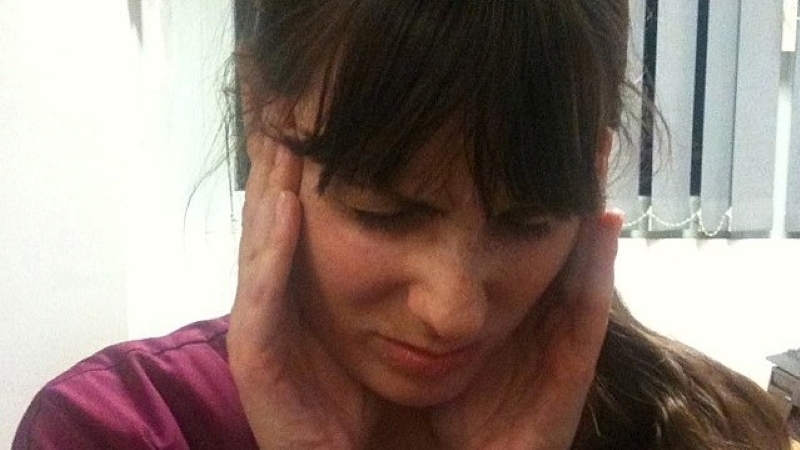With sinus headaches, the pain usually gets stronger when you move your head suddenly or strain. | Wikimedia Commons
With sinus headaches, the pain usually gets stronger when you move your head suddenly or strain. | Wikimedia Commons
Regular headaches can sometimes be confused with sinus headaches, but there are some telltale signs that can help you determine if you are suffering from an everyday headache or if it is really a sinus headache.
Sinus headaches are caused when the air-filled space inside the forehead, cheekbones and behind the bridge of your nose get inflamed due to an infection, commonly known as a sinus infection, or an allergic reaction. When this happens, those air spaces swell, causing more mucus to be created, and the channels that usually drain that mucus get blocked, according to WebMD.
"Our sinus cavities are located right behind our facial structure, so when there's inflammation going on, you get this referred pain," Dr. Manish Khanna of Capitol Breathe Free Sinus & Allergy Centers told Montgomery News. What that means is that shared nerves can be affected, making pain appear to be something other than what it really is.
"The nerve endings are shared all throughout the head and neck area, so inflammation in the sinus cavity can refer down into the upper teeth. We see this a lot with patients who go to their dentist (with what turns out to be sinus pain)," Khanna said.
One of the main ways to tell when it is a sinus headache is if the pain get stronger when moving your head. Another sign may be having sinus symptoms at the same time while experiencing the headache. Symptoms can include a runny nose, fullness in your ears, fever and swelling in your face, according to WebMD.
"Sinus headaches are a referred pain caused by inflammation and blockage of a sinus cavity, which is causing those nerves to fire, and it transmits the pain in the patient's facial area," Khanna said. "Now, whether it's behind the cheeks, whether it's in the forehead and the temples, it’s really anywhere in the head, depending on which sinuses are involved."
When trying to treat a sinus headache, things like over-the-counter medications, including nasal steroid sprays, can help, as well as humidification and moisture steam. Antibiotics and oral steroids can also treat the sinus headache and infection.
A patient can also take over-the-counter pain relievers, or if they don't help, a doctor can prescribe corticosteroids to ease the inflammation in the sinuses.
If an allergic reaction causes flareups, the patient might need a preventive allergy treatment. Keep in mind that using decongestants also can raise a person's blood pressure, so if you have high blood pressure, talk to your doctor before taking one.
There are other options for chronic sinus conditions, like balloon sinuplasty, which can give patients long-term results and relief from symptoms and pain, according to Khanna.
If you are experiencing chronic sinus issues or multiple continuous sinus infections, take the Sinus Self-Assessment Quiz to see if a visit to Capitol Breathe Free Sinus & Allergy Centers could help.


 Alerts Sign-up
Alerts Sign-up